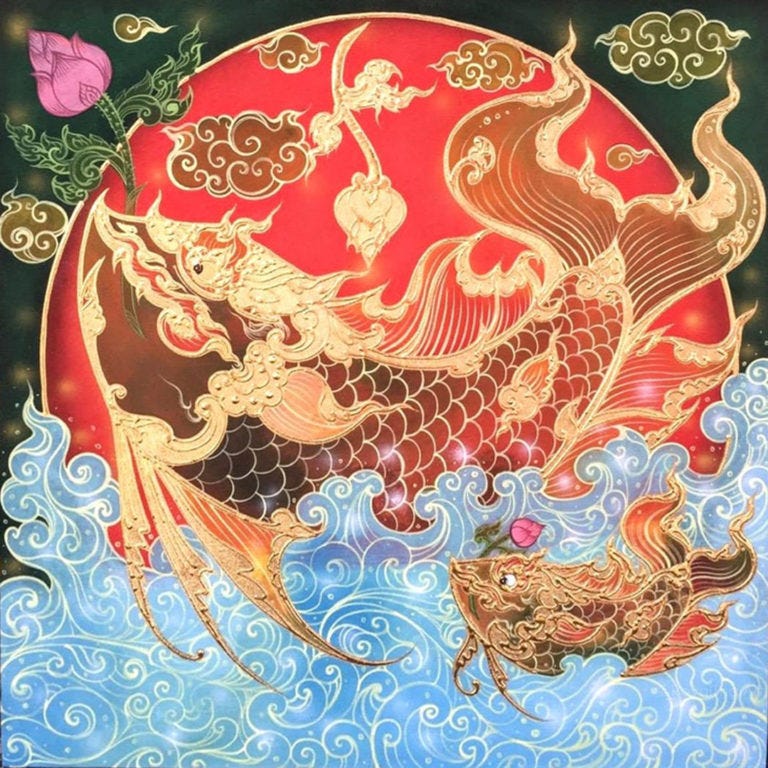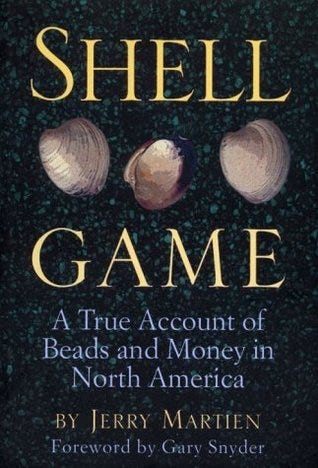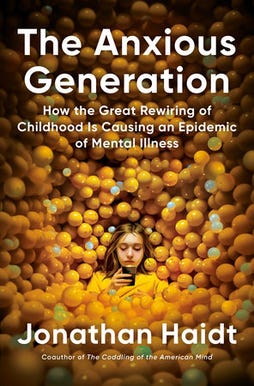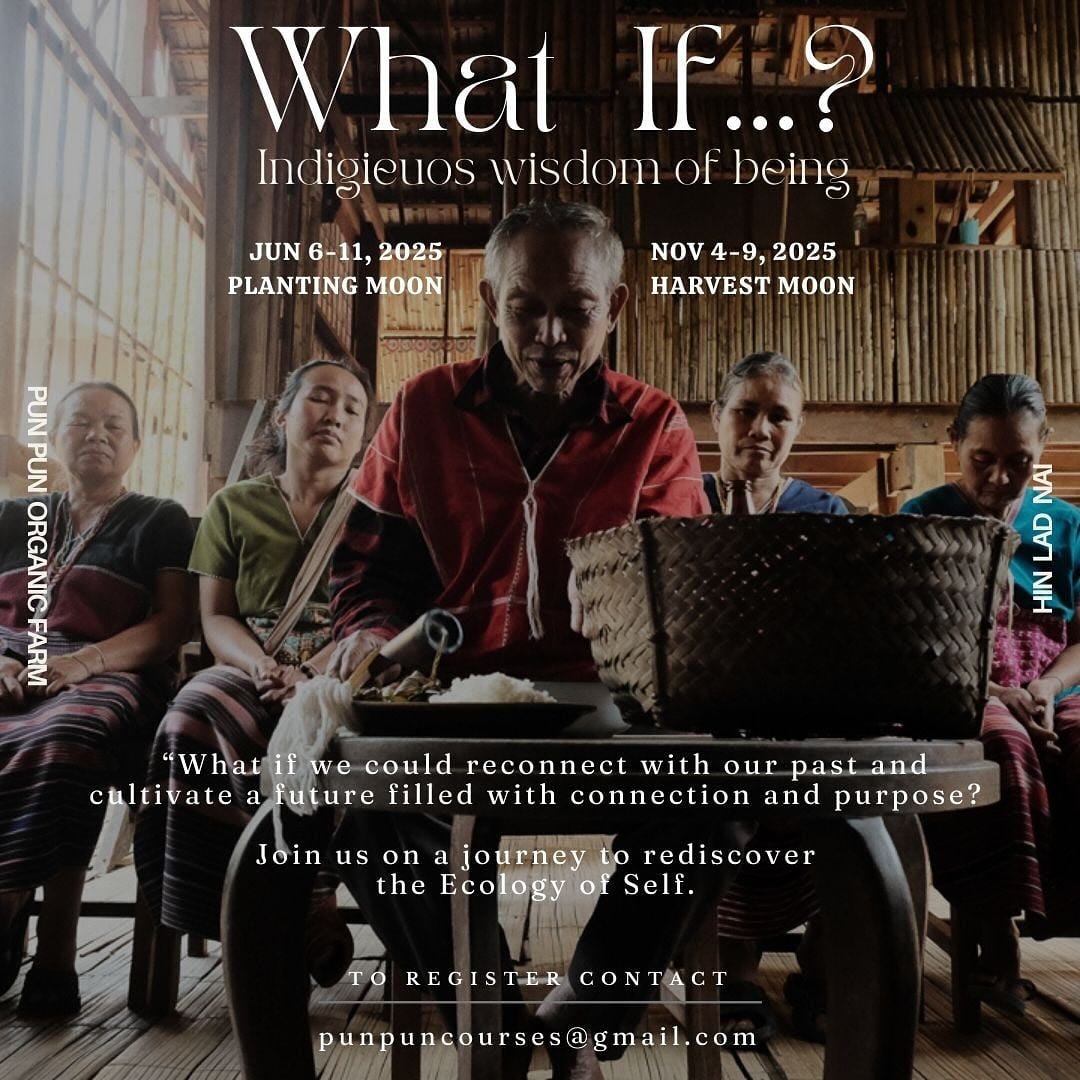This morning my wife, 5 year old daughter and I did as we always try to and gathered together before Grandfather Sun ascended over the eastern horizon to offer gifts of song to That Which Gives us Life. Being our last day on this magical little island in the Andaman, we also offered several other special gifts, to the birds who have been also singing with us throughout our stay here, to the monkeys who have played many tricks along the way, keeping us always on our toes and ever curious, to the little hermit crabs and to the wild mushrooms and vegetables we have been harvesting for our meals each day. And most of all, we gave gifts to Mother Ocean.
Our daughter is just learning what it means to give a gift and how to do it well, which isn’t an easy thing to do in these self-absorbed times. I dare say those who should be leading by example, to put it mildly, aren’t. As Qatar gives the gift of a 400 million dollar airplane to the CEO of America©️, I can’t help but recall the old adage, “Beware of Greeks bearing gifts.”
What is the motivation behind such a imposing “gift”? What kind of person actually wants such a pompous gift? And WTF am I supposed to say to my daughter about this ongoing theatre of billionaire bullshit, after trying to teach her how to offer gifts that don’t make life suffer. Luckily she is still too young to even know that the sad orange man even exists, or for that matter those supposedly god-fearing men in the middle east who don’t seem to mind that a genocide is taking place next door, so I think I’m safe for now. But we need to start thinking about this. ‘Cause the kids are growing up, dear friends, and they are watching us very closely.
Thankfully, there are still many peoples of the earth who know how to offer a good gift. All of us were gift giving people at one point. It’s what made us human. We use to love giving gifts to each other, and especially to the elements, to forces, to stories and the unseen. Modernity has managed to erase so much of our long, colorful narrative of inter-species, inter-elemental, gift-giving culture that all most of us know of now seems to pertain to polite transaction at best, but this is only a sad modern phenomenon. Historically, and even now in many parts of the world, at our core, we are still a noble, gift-giving people. We want to give, because this is what makes us come alive.
But how? Modern culture tells us we should just buy stuff and call it good. And if we were really honest with ourselves, at least in the corporate realms, we are taught that, should we ever give something away, we should do so with the underlying aim being to get something in return. “Twenty years of service! Here is a coffee mug with your name on it next to the company logo, in gratitude!” Or, in honor of companies like Hallmark, we are instructed that gifts should take the shape pre-written cards and store bought flowers for mom on “mother’s day”, or, as expressed by celebrity culture, we are told that, if we get rich, we should probably buy a house or two for the parents, or maybe we can learn to “manifest abundance” and buy cars for our cute audience members (remember that?! Oprah! You can’t make this shit up!).
We feel guilted into buying souvenirs at the airport, to give friends upon return from our trip to Cancun, or wherever, little plastic airplanes for the kids, a silver spoon for ma. A t-shirt for little Jimmy. You know the game. And it gets more crazy around Christmas, which ironically, is supposedly all about “the greatest gift of all”. We are losing our gift-giving skills, allowing ourselves to be brainwashed into simply buying whatever the media convinces us is the most important thing to buy at any given time of the year instead of really knowing what a true gift is.
So what is a real gift all about? It may seem absurd to talk about it all with such conviction. But I implore you, look into it. Why is it that, at the core of all in-tact cultures of the world, we find The Gift? Not just for people, but for EVERYTHING. We find gifts at the feet of trees throughout Southeast Asia. We find mounds of broken pots (often mistakenly believed to simply be tossed out “artifacts” which in truth were intentional offerings to Her) within many an arroyo in the desert Southwest of what we now call the United States. We find thousands of meticulously made beads in tombs the world over. All gifts that clearly suggest that a major percentage of our ancestors’ time was devoted to making gifts. For most of human history, we spent a significant amount of our energy, giving away, everything.
My mentor, Martín Prechtel has generously spoken at length about this topic. Their are marvelous riddles hidden within all of this. The history empire allows us to hear doesn’t even come close to revealing how glorious humans have been, how beautiful and generous. I encourage you to check out Martín’s audial lecture series (Please, Come Sit By My; Fire Talks from the Flowering Mountain) where he eloquently sheds light on these forgotten songs, from myriad angles. It’s always best to learn from elders who really know what they are talking about, so I won’t waste any more of your time with my filtered-down version of what he expertly offers with far more detail. I merely wish to offer a small glimpse here into what I, as a parent of a little girl born in this odd “age of anxiety” is now learning about giving.
We are lucky here in Thailand. For now anyway. So far the strange western fear that all adults are possible pedophiles that put razors in kids’ candy hasn’t prevented kids from hanging out together, forming little bike gangs and learning about life from falling down on concrete instead of padded playgrounds. Oh, cellphones are certainly doing a number on everyone, but so far, kids can still be kids, their schedules aren’t packed with obscene amounts of sports to do, well, unless they are in the fancy “international schools”, so instead they lie around all day, and make gifts!
Of course, they don’t always know they are making gifts. That’s the thing about real gift-giving people. They don’t generally think about gifts as some special kind of thing anymore than a fish thinks about water. Giving gifts is simply what real people do. We have opposable thumbs and therefore, we make beauty. And because we make beauty, we give this beauty away in order to keep the world alive. It’s as basic as learning to walk. That is, before capitalism flipped the narrative upside down and began suggesting it’s every man for himself, all matter is dead and if something can’t have a price tag placed on it, it’s worthless.
Throughout my travels, I have come to recognize The Gift to be the most common human act. Now bear in mind, I don’t travel in many so-called “developed” places where things are a bit, shall we say, different. But whenever someone shows up to anyone’s home in say, Kathmandu, for any reason at all, not just for ones birthday or wedding, but just in passing through on any given afternoon, they bring a gift. Maybe some fruit, maybe some flowers, whiskey, a shirt, a cool bag, something. Always something. And what’s more, gifts are not only given to people, but so too to water, to fire, to earth, air, the unseen and to all those who have gone before us. It’s like this everywhere.
Just take a walk down any back alley in any given corner of Asia, of Latin America, hell, even old Europe. You may think that what is being prayed to is a Catholic saint, or the Buddha, but upon closer scrutiny, what we find is an old elemental god shrouded in a modern mask to prevent the uninitiated from doing anything stupid. Although science and reasoning and all these other fancy tools of modernity would suggest we stopped doing this because we now know better, well, I have news for you, the fires are still being fed.
We make gifts to keep alive what we love, not so that we stay alive, but so that what we love will stay alive. It’s for them. Consider, Why do you give your mother a gift on mother’s day? Why do you give gifts to your children on Christmas morning? Do you do it because you want something from them? I sure hope not! But sadly this is precisely what corporate culture has been directly and indirectly training us all to do for quite some time now. If we can’t get something from someone we are taught by modern culture that there is “logically” no point in wasting time and money on them. Why keep alive a forest if we can’t harvest the trees? What’s the point in that?! Would Qatar give Trump an airplane if he wasn’t rich and powerful? Probably not. They are very “civilized” people after all. Very modern! They passed all the tests and are succeeding very well. Not losers, as The Donald would say.
But I challenge you, as so too has another wonderful Substack author I admire,
, in her lovely effort to encourage people to make “alters to the earth”, to look more deeply at what a gift actually is and what living with gift at the center of our relations might entail, culturally speaking. What if instead of always considering transactions, we were to regenerate our ancestral compass and align ourselves again with the well-being of our kin, and extend this woven prayer beyond our fellow humans, to encompass (no pun intended) the more-than-human world as well.wampum belt
…
My daughter stares at the waves for a few minutes and eventually breaks the wordless eternal asking, “What does the Ocean want, daddy?” My heart sinks. I want to give her a gold star. But there’s no need for that, because there’s an actual star blazing in the heavens overhead. “Ask Him”, I reply, pointing to Father Sun. “He knows Her very well. But don’t ask with your words, He doesn’t speak human. Ask with a vocable song, ask what She loves with a dance. Hmm.. Better yet, slow down and observe what She loves. Just like you do when you are thinking of what gift to give mommy. Watch what the Ocean loves and try to give Her that.”
We spend a few more hours together on the islands shore. No schedule. Just playing and being. I sit on a small cliff and hug my wife. We speak out loud to the Ocean all that we can remember of our time spent here. With as much detail as we can recall we recreate the whole story, of our arrival, our fumbling to orient ourselves to this once unfamiliar place, the times of peace, the times of war, the times of triumph, the many mistakes. We recall how She was a part of all of it. Every single bit. And it isn’t lost on us either that when we trace back our bloodlines far enough it all started here. So long ago. Just yesterday.
“Daddy! Daddy!” Our daughter comes running. “I know what to give to the Mother Ocean!” I pick her up into my arms and listen with undivided attention, “She loves wind! I can run so fast that wind comes! So I will give this to Her!” And just as fast as she ran into my arms, she begins orbiting as brilliantly as a cyclone until suddenly a little-girl-sized wave jumps up out of nowhere, mischievously knocking our galloping typhoon over in a receptive gesture of gratitude. A great wind then soared back through the undertow and we knew, it was time to go. Surya’s gift was well received.
One of the many great things about spending time with children, whether they are “yours” or not, is how they force us to be better, to see deeper and try harder. The truth is, I know just about as much as what makes a good gift as my offspring does. We are learning together. There is no point in our generation continuing to harbor anger at our forefathers for neglecting to teach us what we now know we should have been taught. This is the way it is. We are here now and regardless why things are the way they are, the kids need us to show up. They need us to show them how to try. How to fail. How to be amazed and how to listen. They need to watch us ask good questions, not with Siri, but with our eyeballs, gazing over the ocean at dawn, with our opposable thumbs attempting to carve something beautiful into a piece of wood, not with the intention of selling whatever we make, or even posting a picture of it on instagram but simply to learn, to make a gift, something wonderful to offer another person someday, or maybe not another person at all, maybe the trailhead of yet another great adventure, to say thank you Mother Earth, we adorn you now with our full attention.
Children often find it easier to learn the language of stars than grown ups do. When asking permission from a tree to take a few leaves to make paint from, I don’t always know what to listen for in order to hear an honest reply. My brain has become too civilized I suppose, but children, they still know. And if we pay attention we might learn a thing or two from them, about how to be wind.
speaking of gifts…
or…
Suggested Reading:
…
Shell Game by Jerry Martien
“Shell Game, a unique and revealing investigation into the nature of money and human exchange, intertwines two stories. One starts in Manhattan in 1627 with the transactions by which North America was "bought" by Europe. Martien shows how a gift relationship based on beads was replaced by monetary relations based on credit, and how ancient ways of bookkeeping, exemplified by the Iroquois wampum exchange, were replaced by a social contract based on scarcity and deficit.
Interspersed with his historical account, Martien tells a parallel story set in the present in which he attempts to negotiate a book advance, visit the wampum keeper at Onondaga, and unravel a personal tangle of love and habit in his life. Martien's search becomes a journey of remembrance and acknowledgment and an apology and condolence for cultural and monetary misappropriation. It becomes a pilgrimage in search of restitution and recovery that many readers will want to join.”
…
The Anxious Generation: How the Great Rewiring of Childhood is Causing an Epidemic of Mental Illness by Jonathan Haidt
“In The Anxious Generation, social psychologist Jonathan Haidt lays out the facts about the epidemic of teen mental illness that hit many countries at the same time. He then investigates the nature of childhood, including why children need play and independent exploration to mature into competent, thriving adults. Haidt shows how the “play-based childhood” began to decline in the 1980s, and how it was finally wiped out by the arrival of the “phone-based childhood” in the early 2010s. He presents more than a dozen mechanisms by which this “great rewiring of childhood” has interfered with children’s social and neurological development, covering everything from sleep deprivation to attention fragmentation, addiction, loneliness, social contagion, social comparison, and perfectionism. He explains why social media damages girls more than boys and why boys have been withdrawing from the real world into the virtual world, with disastrous consequences for themselves, their families, and their societies… Most important, Haidt issues a clear call to action. He diagnoses the “collective action problems” that trap us, and then proposes four simple rules that might set us free. He describes steps that parents, teachers, schools, tech companies, and governments can take to end the epidemic of mental illness and restore a more humane childhood… Haidt has spent his career speaking truth backed by data in the most difficult landscapes—communities polarized by politics and religion, campuses battling culture wars, and now the public health emergency faced by Gen Z. We cannot afford to ignore his findings about protecting our children—and ourselves—from the psychological damage of a phone-based life.”
Come join us here in Thailand. Families Welcome.
If you could kindly tap the ❤️ at the top or bottom of this newsletter it will make it easier for other people to find this publication. Ahéhee'! བཀའ་དྲིན་ཆེ།! 謝謝! Thank you! ขอบคุณ! شكرا ! תודה! Спасибо! धन्यवाद! Cảm ơn bạn! អរគុណ! Merci y Muchisimas gracias!
#mayallbeingsbehappyandfree










So grateful for your words. How you show and tell us what the real gifts are. Thank you. ❤️
I thought of the Trojan horse as well!